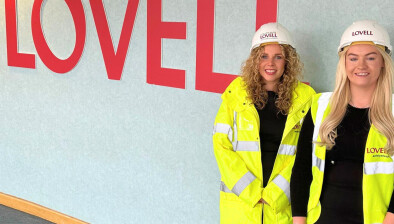April sees UK construction output drop as first quarter revised upwards
 Output in the construction industry fell 0.6% in the three months to April, driven mainly by a 0.9% fall in all new work, according to new figures from the Office of National Statistics (ONS).
Output in the construction industry fell 0.6% in the three months to April, driven mainly by a 0.9% fall in all new work, according to new figures from the Office of National Statistics (ONS).
The fall, which represents the first three month on three month drop in construction output since September 2016, was largely due to a 2.6% decrease in infrastructure, which dropped for the first time in six months, as well as a 1.1% drop in private housing.
Construction output also fell month-on-month in April 2017, dropping 1.6%; driven by falls in both repair and maintenance, and all new work.
The fall in all new work in April 2017 was somewhat offset by a sizeable rise in infrastructure, which grew by 5.7% compared with March 2017.
The ONS also revised the data for Q1 (January to March) 2017 increasing from 0.2% to 1.1%, leading to a 0.05% revision to gross domestic product (GDP).
The Scottish division of partnership housing developer Lovell said the figures show the country’s housebuilding sector is making a strong start to 2017 with a rise in new orders for private housing.
Regional managing director for Lovell in Scotland, Stephen Profili, said: “These latest figures suggest the UK construction industry has made a strong start to 2017 and that a buoyant housebuilding sector in particular is making a major contribution to that strong performance.
“April was a good month for Lovell in Scotland with construction getting underway on a number of projects and others approaching completion, putting us well on track to meet our expectation of delivering around 450 new homes during 2017, most of them affordable housing. This will be an increase of more than 60% on the number of new homes Lovell completed during 2016.
“Notwithstanding the increased uncertainty prompted by the outcome of this week’s snap general election, there are promising signs that 2017 is shaping up to be a year of strong growth for the housebuilding industry, in Scotland and across the UK.”
Allan Callaghan, managing director of home builder Cruden Buildings and Renewals Ltd, said: “A decrease in output figures is not entirely unexpected, given some of the wider economic and political uncertainty currently ongoing, however at Cruden we are still experiencing strong demand for house building.
“However, whether or not output is rising, the ongoing skills shortage remains a crucial challenge and one that the industry and the government need to work together to address. Without skilled labour we cannot increase output to the levels needed to tackle issues such as the housing gap.
“That’s why at Cruden we have taken the decision to proactively address this, and have recently doubled our intake of first year apprentices and grown our modern apprenticeship programme to over 70. This, combined with our Cruden Academy - a continuous programme of investment in employees’ lifelong learning, training and distance support, as well as further education support - means that we will have a pipeline of talented and skilled employees to help us meet any challenges, and opportunities, the future might present.”
Derek Shewan, chief operating officer of Robertson Group, added: “It is disappointing to see a further decrease in output across the construction industry. When times are tough, there can be a tendency for businesses to become overly cautious, but I believe the best approach is to focus on becoming more innovative and productive. At Robertson Group, we have remained resilient across our 22 businesses precisely because innovation is at the heart of our approach.”

















